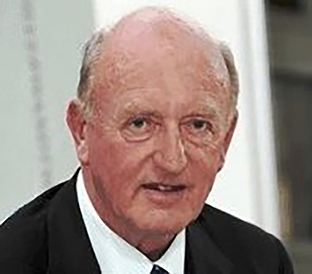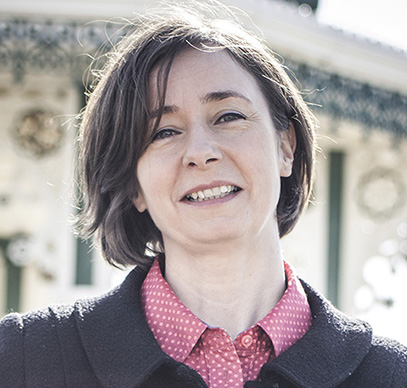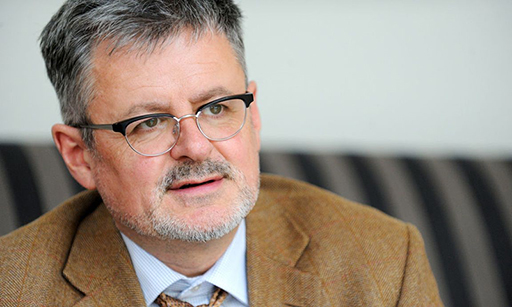2.2 Evaluating opposing interpretations: John Röhl and Christopher Clark
In this section, you will listen to two leading historians of the First World War, Professor John Röhl, a British-German historian who shares Fischer’s interpretation, and Professor Christopher Clark, an Australian historian who teaches at Cambridge University and whose revisionist approach to the subject made him a household name in Germany during the centenary years.
Röhl and Clark have rather opposing views on why the war broke out and they also differ in their interpretations of some of the key evidence given in this course on German decision-making before the war.
The interviews that you will listen to were recorded just after the publication of Clark’s book, The Sleepwalkers: How Europe Went to War in 1914.
Activity 4 Historians talk about their interpretations
The first person you’ll hear in this activity is John Röhl. Listen to the discussion and briefly summarise his view of the causes of the war.
Transcript: John Röhl 1

Discussion
For Röhl, the war was no accident; it was caused by Germany’s desire to dominate Europe. There is, according to Röhl, overwhelming evidence that Germany intended to start a war.
Now listen to the next audio clip, in which John Röhl expands on this view. How convinced is he by the evidence?
Transcript: John Röhl 2

As you have heard, as far as Röhl is concerned, the evidence provided by Fischer and others, himself included, allows no other conclusion but that Germany had aggressive war aims.
Did you know?
In his interview, Röhl refers to the Kautsky documents. In November 1918, Karl Kautsky, a member of the independent Social Democratic Party, was given the task of editing some secret official documents, but, when his edition was finished, it was vetted by the German foreign office for showing German pre-war policy in a bad light.
Activity 5 The opinion of Christopher Clark
In the next audio, Christopher Clark explains that, for him, Germany is just part of the story, but that the origins of the war were about much more than Germany. Listen to the interview with Christopher Clark and briefly summarise his position.

Transcript: Christopher Clark 1
Discussion
For Clark, the fact that a Balkan crisis was the trigger for war is no coincidence as he sees the Balkan states as ‘players’ in this story (in fact, he was one of the first historians to shine a spotlight on the ‘powder keg’ of the Balkans and to stress Serbia’s responsibility).
Now listen to the final audio clip for this activity. How do Clark’s views differ from Röhl’s with regard to evidence such as the September Programme?
Transcript: Christopher Clark 2
Comment
Clark does not think that war was planned at the war council meeting in 1912 and he is not convinced that the September Programme is a good indicator of German war aims, as it was written in September, i.e., after the war had started, when it was still going well for Germany and a German victory seemed likely.
In the next section, we’ll take a closer look at some of this evidence and interrogate the sources ourselves.
